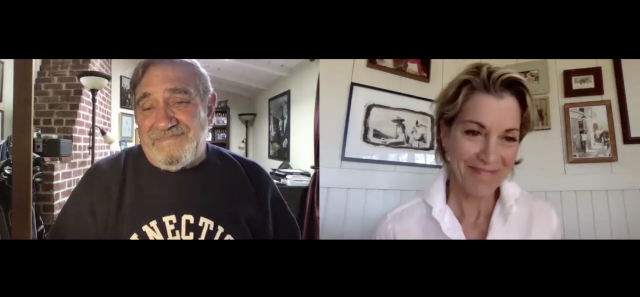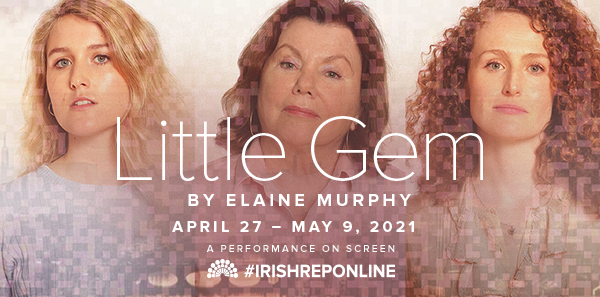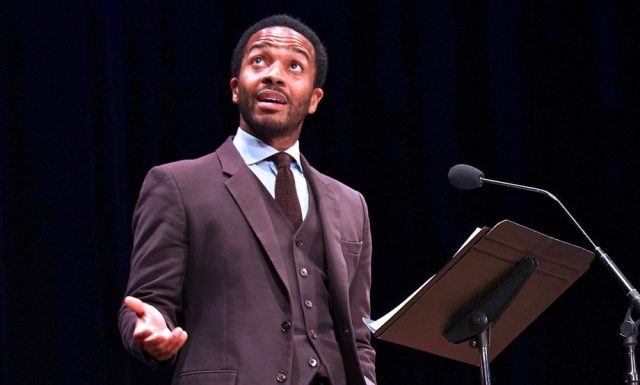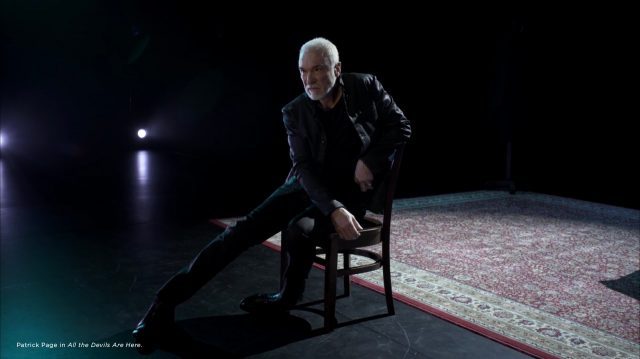
Laguna Playhouse online
Streaming through May 2, $20
lagunaplayhouse.com
Earlier this week I was in California, and as we passed by the Laguna Playhouse, I couldn’t help but notice the “Closed” sign. When I returned home to New York City, I discovered, coincidentally enough, that there were still a few days left to catch the hundred-year-old company’s streaming of Lia Romeo’s Sitting and Talking. The fifty-five-minute online production, available on demand through May 2, was written specifically for and takes place over Zoom. Romeo penned the script last May, it was filmed in August, and it premiered in September as part of the Hoboken-based Mile Square Theatre’s “Given Circumstance: New Plays in the Virtual World” series (and coproduced by Project Y).
It’s April 2020, and two unnamed septuagenarians meet through an online matchmaking site. He (Dan Lauria) is a gruff divorcé, while she (Wendie Malick) is an elegant widow, not sure if she’s ready to date yet after her husband’s death two years before. Their first Zoom call is pretty much a disaster, as they have little in common and no electricity. But they keep speaking with each other, finding a certain solace in their sudden, if not magnetic, connection. She tells him, “They’re saying loneliness is an epidemic, especially among older . . . I mean, a lot of us were pretty isolated before, if we didn’t have regular things we did. And now I think we can’t even see our kids, our grandkids.” He admits, “I was stupid to think I could fix it. I can’t fix anything.” While he is open to developing their relationship, she is cautious and fearful, echoing how so many people have felt during the pandemic lockdown, when we spent most of our time in our houses and apartments, unable to see friends, relatives, or potential significant others.

Dan Lauria and Wendie Malick try Zoom dating during the pandemic in Sitting and Talking
Directed by James Glossman (Flint, Shostakovich and the Black Monk: A Russian Fantasy) and recorded in the actors’ homes (they supply their own wardrobe, set design, and camerawork), Sitting and Talking is a warmly told tale with an innate charm and sense of humor. Lauria (The Wonder Years, A Christmas Story: The Musical) and Malick (Hot in Cleveland, Just Shoot Me!) have an infectious camaraderie that immediately welcomes you into the story of their characters; the actors might just be sitting around talking, but you’re likely to be left with a bit of longing when it ends, perhaps unwilling to say goodbye to them just yet.
Regional theater champions Lauria and Malick know each other well, and that comes across onscreen; they previously teamed up for a reading of Lee Blessing’s A Body of Water at the 2018 Durango PlayFest, which they helped cofound, and were scheduled to appear in the world premiere of Blessing’s Tea with the Boss last July at New Jersey Repertory before the coronavirus crisis shuttered all live performance. They portray their characters with a tender vulnerability that we can all identify with, regardless of our age or family situation. Every one of us has experienced feelings of loss and isolation over the last fourteen months, moments of dread that we tend to keep inside and that Romeo (Connected, Green Whales) thoughtfully explores.
There have been only a handful of exceptional works written during the pandemic in which the narrative organically unfolds over Zoom. These include Jake Shore’s Adjust the Procedure, Jordan E. Cooper’s Mama’s Got a Cough, and Richard Nelson’s What Do We Need to Talk About? You can add the exquisitely rendered Sitting and Talking to that exclusive club.
(For more on the show and its potential longevity, you can watch a Zoom talkback with Lauria, Malick, Glossman, and Romeo, moderated by Laguna Playhouse artistic director Ann E. Wareham, here.)





